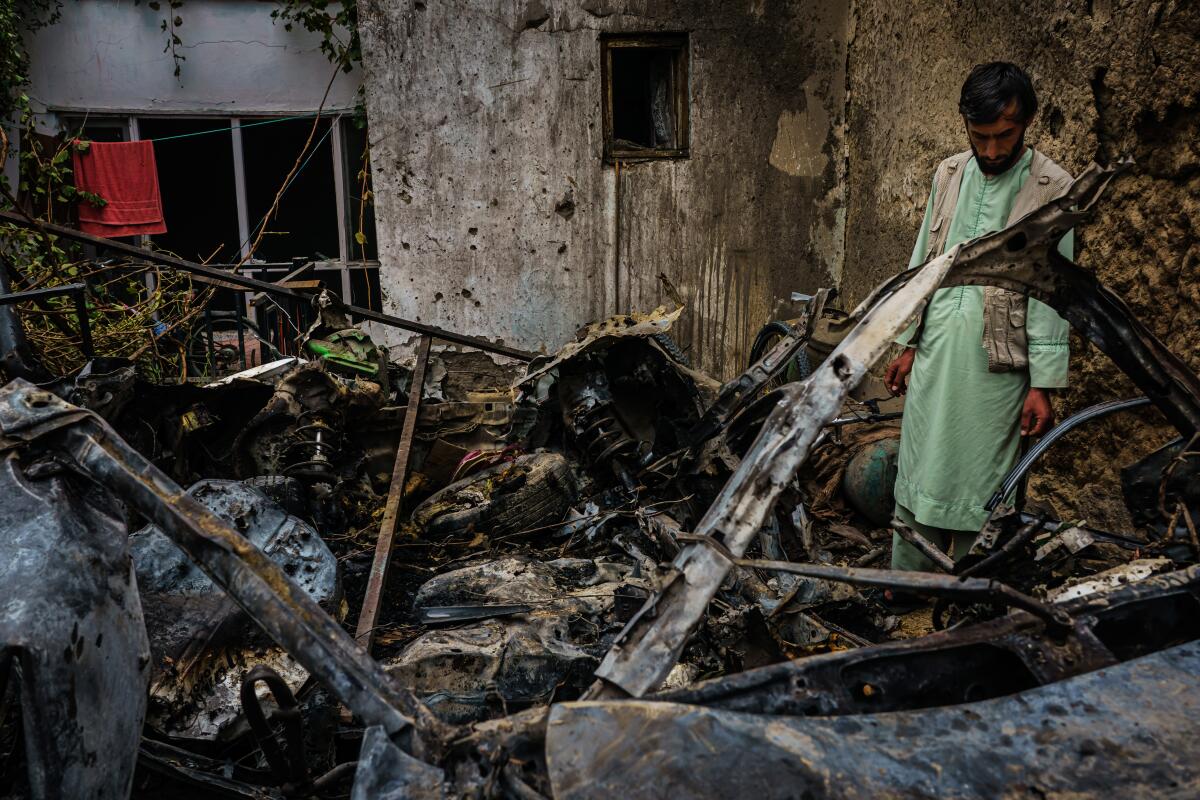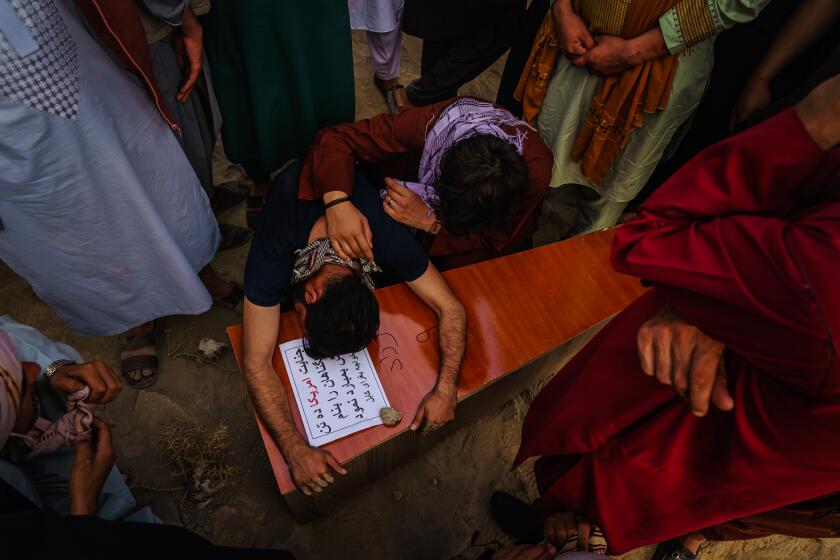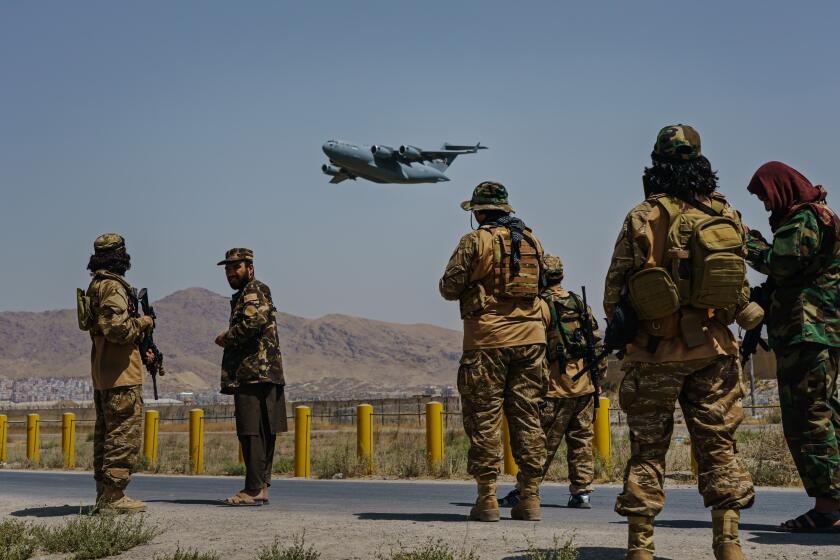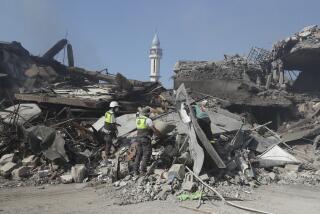Survivors of errant U.S. drone strike in Kabul that killed 10 are upset it will go unpunished

- Share via
KABUL, Afghanistan — The survivors of an errant U.S. drone strike that killed 10 members of their family in Kabul, Afghanistan, said Tuesday they were frustrated and saddened that troops involved in the strike will not face disciplinary action.
A U.S. Hellfire missile slammed into a car belonging to Zemerai Ahmadi, killing him and nine relatives, including seven children, in the chaotic final days of the U.S. troop withdrawal from Afghanistan.
On Tuesday, three of Ahmadi’s brothers spoke of their loss, sitting just a few feet from where the missile struck Aug. 29. They said that to this day, they have heard nothing from Washington about its promised financial compensation or when they would be evacuated from Afghanistan.
Ahmadi, 37, was a longtime employee of an American humanitarian organization. The strike that killed him and nine others took place amid the chaotic last days of the U.S. troop withdrawal from Afghanistan following the Taliban takeover of the country in mid-August.
It also came just days after an Islamic State suicide bomber killed 13 U.S. troops and 169 Afghans at a Kabul airport gate. U.S. forces believed that the car they were monitoring was an imminent threat and decided to strike.
Since the strike, the Ahmadis have demanded that those responsible be punished and that they be relocated to the U.S. or a third country deemed safe for them.
Members of an Afghan family and the U.S. military recount a massive explosion in Kabul on Sunday.
On Monday, the Pentagon said that Defense Secretary Lloyd J. Austin III had approved recommendations for improvements in strike operations from the generals who lead U.S. Central Command and Special Operations Command, based on the findings of an independent Pentagon review released last month.
But the generals made no recommendations for disciplining those involved in the strike on Zemerai Ahmadi, according to John Kirby, chief Pentagon spokesman.
Kirby said the U.S. was still ready to pay financial compensation to the Ahmadis and potentially get them out of Afghanistan. Asked why it was taking so long, Kirby said the U.S. wanted it done as safely as possible.
For the Ahmadis, they say that every day they remain in Kabul puts them at risk. Rumor on the street has it that the U.S. has already paid them, and criminals are eager to get their hands on the money, said Emal Ahmadi. His 3-year-old daughter Malika was killed in the strike.
President Biden says the counter-terrorism mission in Afghanistan will continue. Experts say it’s going to be much harder.
They are also receiving phone threats, added Emal, the youngest of the brothers. The callers threaten to kill them if they don’t give them money.
“People are always asking us how much money we got,” he said. As for the U.S. promises to evacuate the family, “we are waiting. We have heard nothing. ... The longer it takes, the more dangerous it is for us.”
For Romal Ahmadi, whose three children, ages 2 to 7, were killed in the strike, the days are a blur. “I feel only pain,” he said. He wants the U.S. troops behind the strike punished.
“But America is a superpower,” he said. “We are powerless to do anything, so we leave it to God to punish them.”
Breaking News
Get breaking news, investigations, analysis and more signature journalism from the Los Angeles Times in your inbox.
You may occasionally receive promotional content from the Los Angeles Times.
At the time of the strike, the U.S. was working to evacuate thousands of Americans, Afghans and other allies in the wake of the Afghan government’s collapse.
For weeks after, and despite mounting evidence that the U.S. had wrongly killed the 10 Ahmadis, the Pentagon maintained that it had taken out a potential Islamic State operative. It wasn’t until mid-September that U.S. Marine Gen. Frank McKenzie, head of U.S. Central Command, called the strike a “tragic mistake” and said that innocent civilians were indeed killed in the attack.
The Pentagon review subsequently found breakdowns in communication in the process of identifying and confirming the target of the bombing.
“My children are all gone. No one can bring them back,” Romal Ahmadi said.
More to Read
Sign up for Essential California
The most important California stories and recommendations in your inbox every morning.
You may occasionally receive promotional content from the Los Angeles Times.












